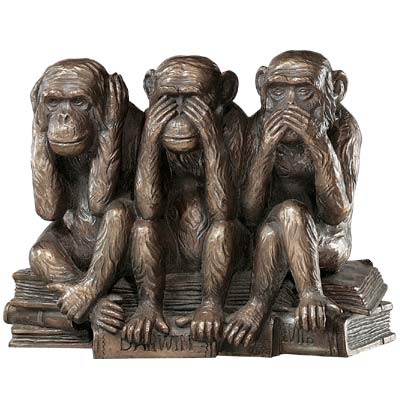Guantanamo Bay: the decline of American ideals
A little over three years ago, America was rocked by a terrorist attack on its own soil, and by the end of the day, a major landmark was destroyed and nearly three thousand innocent Americans were dead.
As the Japanese can attest, America does not react kindly to an attack on its own soil: America was not just shocked, America was pissed.
When people are angry, we have a natural tendency to overreact, and our outrage at the events of 9/11 was no exception to this. In the aftermath of 9/11, the United States government took two short-sighted actions that sapped at the underpinnings of democracy, liberty, and justice in this country. The first was passing the USA PATRIOT act (the topic of a future post). The second was establishing the Guantanamo Bay prison camp. While both of these acts may have seemed justifiable in the aftermath of 9/11, in retrospect both of these actions have undermined the basic foundation of what America stands for.
In 2001, the American government was faced with a predicament. They had invaded Afghanistan and had captured a number of Taliban prisoners, but needed somewhere to keep them. They needed a place they controlled, but not somewhere that could be considered part of the United States proper, since that would bring the prisoners under the jurisdiction of the US court system. So, Guantanamo Bay was chosen. Guantanamo Bay is a plot of land that is actually part of Cuba; land that was leased by the US from the pre-Castro Cuban government and which the United States maintains as a military base.
This leads to a fundamental question: what is wrong with the US justice system that they would want to circumvent it by housing these detainees in Guantanamo Bay? Is the US justice system somehow not good enough for them? A more disturbing question is raised by the treatment of some American citizens who were caught up in the war on terror, and who were not sent to Guantanamo Bay because they were American. Why would Americans be jailed in the United States while foreigners are jailed in Guantanamo Bay?
The answers to these questions are very troubling. By sending foreign prisoners to Guantanamo Bay, the United States has evidently adopted two standards of justice: one for American citizens, and a much harsher one for foreign nationals. American suspects get the full protection of the US justice system, while foreign suspects get tossed into the black hole of Guantanamo Bay, where stuff goes in and never sees daylight again. Does this not seem fundamentally wrong? And, if the American government can legally do this to these people, who is next?
One of the protections the American court system provides is called a "writ of habeas corpus", or in plain English, what I would call a "writ of why are you holding this guy in jail?" With a writ of habeas corpus, the government is required to bring the prisoner to the court and demonstrate that they have reason to keep him imprisoned. Guantanamo Bay was specifically constructed to avoid this protection - so the government could hold prisoners there as long as they want without having to justify doing so in a court of law.
Fortunately, the US Supreme Court has weighed in on this issue recently. In July, 2004, the Supreme Court ruled that, because the United States enjoys "complete jurisdiction and control" over Guantanamo Bay, the prisoners there have the right to file for a writ of habeas corpus in American federal courts. This is hopefully only the first step in the unravelling of the government's attempt to circumvent the US courts in Guantanamo Bay .
Guantanamo Bay is an affront to the US justice system, and a slap in the face for all of the brave men and women who have died defending it. In the aftermath of 9/11, Guantanamo Bay may have seemed justifiable, but now that things have settled down a bit, it is something that needs to be reconsidered. If we allow ourselves to undermine the foundation of our own justice system and turn America into a police state, the 9/11 terrorists have won.




